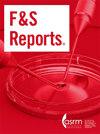Safety and pharmacology of AMY109, a long-acting anti–interleukin-8 antibody, for endometriosis: a double-blind, randomized phase 1 trial
IF 2.2
引用次数: 0
Abstract
Objective
To evaluate the safety and pharmacokinetics/pharmacodynamics of AMY109, an anti–interleukin-8 recycling antibody in a first-in-human phase 1 trial in healthy volunteers (HVs) and patients with endometriosis.
Design
A multicenter, randomized, double-blind, placebo-controlled single-dose and multiple ascending-dose study in Japan and Taiwan.
Subjects
Asian and White HVs in part 1 and patients with endometriosis aged ≥20 to <50 years in part 2.
Intervention
In part 1, sequential cohorts of HVs randomly received a single subcutaneous dose of AMY109 (0.6, 2.0, 3.5, or 5.0 mg/kg) or placebo. In part 2, sequential cohorts of patients with endometriosis randomly received a once-monthly subcutaneous dose of AMY109 (0.8, 2.0, or 5.0 mg/kg) or placebo for 6 months.
Main Outcome Measures
The primary objective was to assess the safety and tolerability of AMY109. Pharmacokinetic profiles and efficacy were evaluated as secondary and exploratory endpoints, respectively.
Results
Overall, 42.1% (32/76) of HVs in part 1 and 61.5% (16/26) of patients in part 2 experienced at least one adverse event during the study. The most common adverse events were oropharyngeal pain, pharyngitis, upper respiratory tract infections, and upper respiratory tract inflammation in part 1 (≥5.0%) and vomiting, nasopharyngitis, diarrhea, nausea, and vaccination site pain in part 2 (≥15.0%). Most events were mild to moderate in severity and were resolved/resolving at last follow-up. Of note, menstrual bleeding in patients with endometriosis was not interrupted during AMY109 treatment. Pharmacokinetic analysis showed that AMY109 had a long half-life (40 days) and exhibited linear pharmacokinetics across all cohorts.
Conclusion
AMY109 demonstrated acceptable safety and pharmacokinetic profiles in HVs (single dose of 0.6–5.0 mg/kg) and patients with endometriosis (multiple doses of 0.8–5.0 mg/kg/month for 6 months). These results support further clinical development of AMY109 for endometriosis and other diseases influenced by interleukin-8.
Trial registration number
AMY001JG study; JapicCTI-183841. Trial registration date: January 25, 2018. Date of first participant’s enrolment: February 26, 2018.
长效抗白细胞介素-8抗体AMY109治疗子宫内膜异位症的安全性和药理学:一项双盲随机一期试验
目的评价抗白细胞介素-8循环抗体AMY109在健康志愿者和子宫内膜异位症患者中的安全性和药代动力学/药效学。在日本和台湾设计一项多中心、随机、双盲、安慰剂对照的单剂量和多次递增剂量研究。第一部分的研究对象是亚裔和白人的hiv病毒携带者,第二部分的研究对象是年龄≥20 ~ 50岁的子宫内膜异位症患者。在第一部分中,连续的hv队列随机接受单次皮下剂量的AMY109(0.6、2.0、3.5或5.0 mg/kg)或安慰剂。在第二部分中,子宫内膜异位症患者的顺序队列随机接受每月一次皮下剂量的AMY109(0.8、2.0或5.0 mg/kg)或安慰剂,持续6个月。主要结局指标主要目的是评估AMY109的安全性和耐受性。药代动力学特征和疗效分别作为次要终点和探索性终点进行评估。结果总体而言,第1部分42.1%(32/76)的hiv患者和第2部分61.5%(16/26)的患者在研究期间至少经历了一次不良事件。最常见的不良事件为第1部分的口咽疼痛、咽炎、上呼吸道感染和上呼吸道炎症(≥5.0%),第2部分的呕吐、鼻咽炎、腹泻、恶心和接种部位疼痛(≥15.0%)。大多数事件的严重程度为轻度至中度,并在最后随访时得到解决。值得注意的是,在AMY109治疗期间,子宫内膜异位症患者的月经出血没有中断。药代动力学分析显示AMY109具有较长的半衰期(40天),并且在所有队列中表现出线性药代动力学。结论amy109在hv(单次剂量0.6-5.0 mg/kg)和子宫内膜异位症(多次剂量0.8-5.0 mg/kg/月,持续6个月)患者中具有可接受的安全性和药代动力学特征。这些结果支持AMY109治疗子宫内膜异位症和其他受白细胞介素-8影响的疾病的进一步临床开发。试验注册号:amy001jg研究;japiccti - 183841。试验报名日期:2018年1月25日。首位参赛者报名日期:2018年2月26日。
本文章由计算机程序翻译,如有差异,请以英文原文为准。
求助全文
约1分钟内获得全文
求助全文

 求助内容:
求助内容: 应助结果提醒方式:
应助结果提醒方式:


